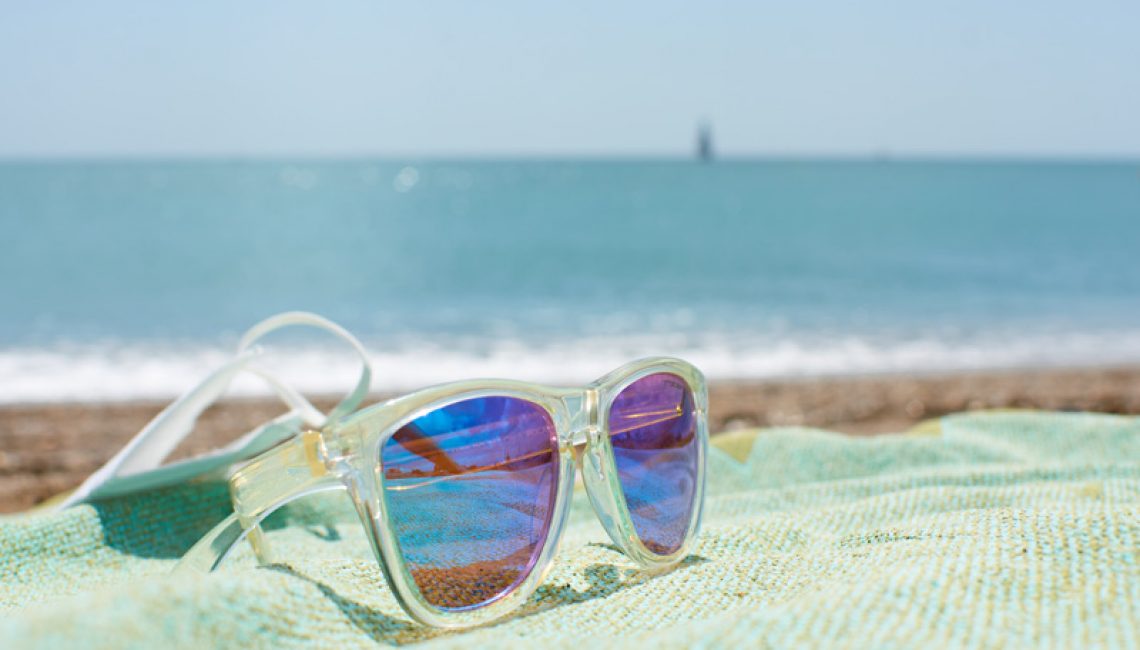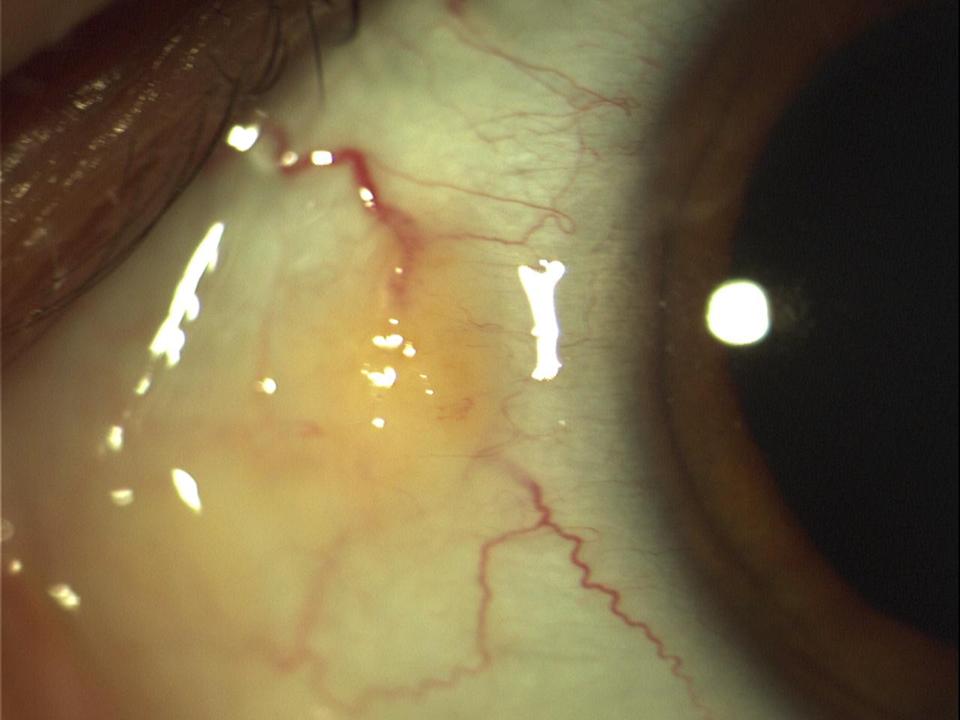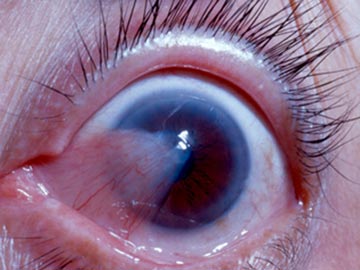Hopefully the summer months are here, and our eyes will be dealing with more UV. Is this a bad thing? Currently there is no evidence to link UV exposure with melanoma of the eye, and you wouldn’t hang your hat on a link even to cataract. But UV-Bs specifically is linked with non-melanoma tumours of the eyelids (basal and squamous cell carcinomas), and the much more common non-cancerous “degenerations” of the whites of our eyes called pingueculae and pterygia (see pictures).
PTERYGIUM (left) and PINGUECULA (right)
The use of sunglasses to block the UV-B that isn’t blocked by atmospheric ozone is good for the eyes, but is it good for your body? The answer maybe no. A paper with a title that winks and challenges you to say it in one breath (Ultraviolet B Irradiation of the Eye Activates a Nitric Oxide-dependent Hypothalamopituitary Proopiomelanocortin Pathway and Modulates Functions of a-Melanocyte-stimulating Hormone-responsive Cells) found that when the trigeminal nerve on the front surface of your eye detects UV-Bit tells the skin to release more melanin (so you tan) to absorb the UV-BI. f you wear sunglasses, this natural eye signal to the skin is disrupted, you dorit release as much melanin, and by implication, you are at higher risk of sunburn.
The recommendation of this optometrist is to wear sunglasses (ideally prescription, polarised, and wrap compensated of course) to prevent long term damage caused by UV and to improve visual comfort from fatigue caused by brightness glare, but also to “keep it natural” by regularly removing your sunglasses for a few minutes so your eyes inform your brain/body what the full UV picture is.





